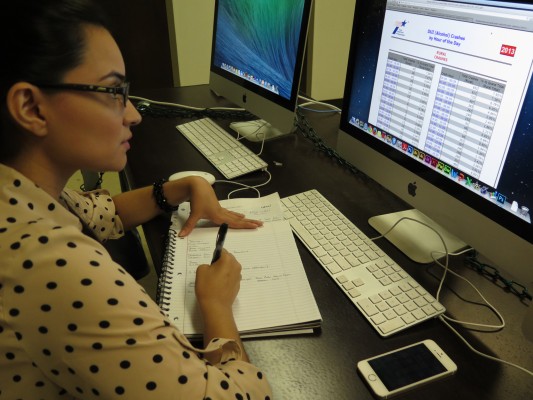Guns and showmanship – Seeing a Texas GOP debate watch party through the eyes of a study-abroad student
|
EL PASO, Texas – CNN reported that more than 80 million people tuned in to watch the Clinton-Trump debate on September 26, making it the most-watched presidential debate in history. It will also remain a day which will live long in my memory as my first real taste of a U.S. presidential debate watch. When I first arrived at the El Paso County Republican Party offices I was greeted with a man carrying a 12 gauge shotgun and a .44. Magnum marching Hilary Clinton around the offices. No, not the real Hillary, a masked version of the candidate.


